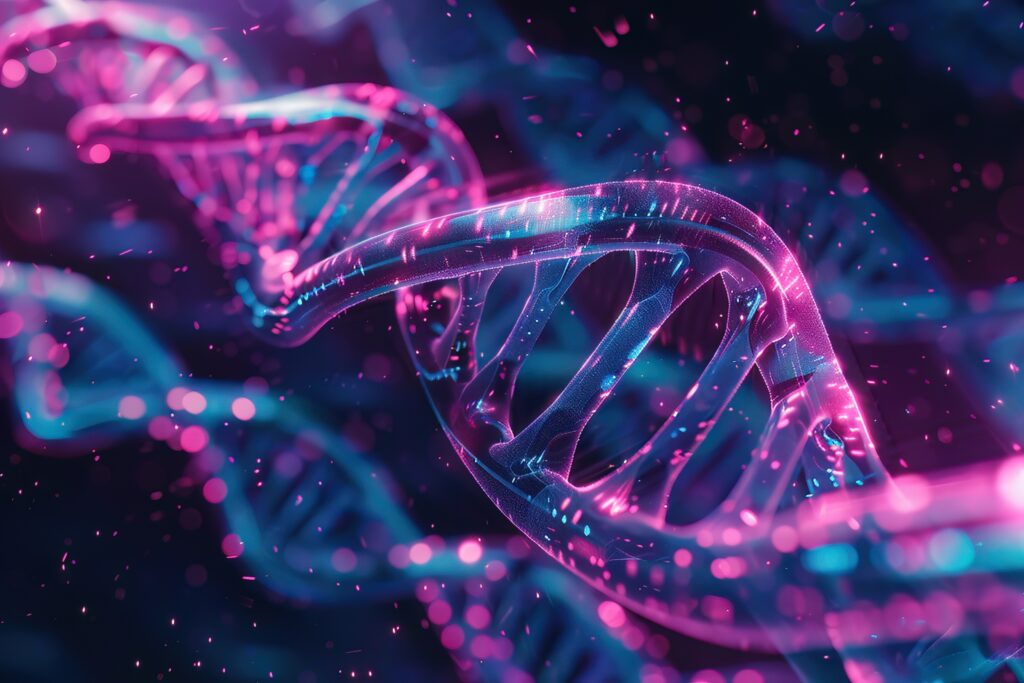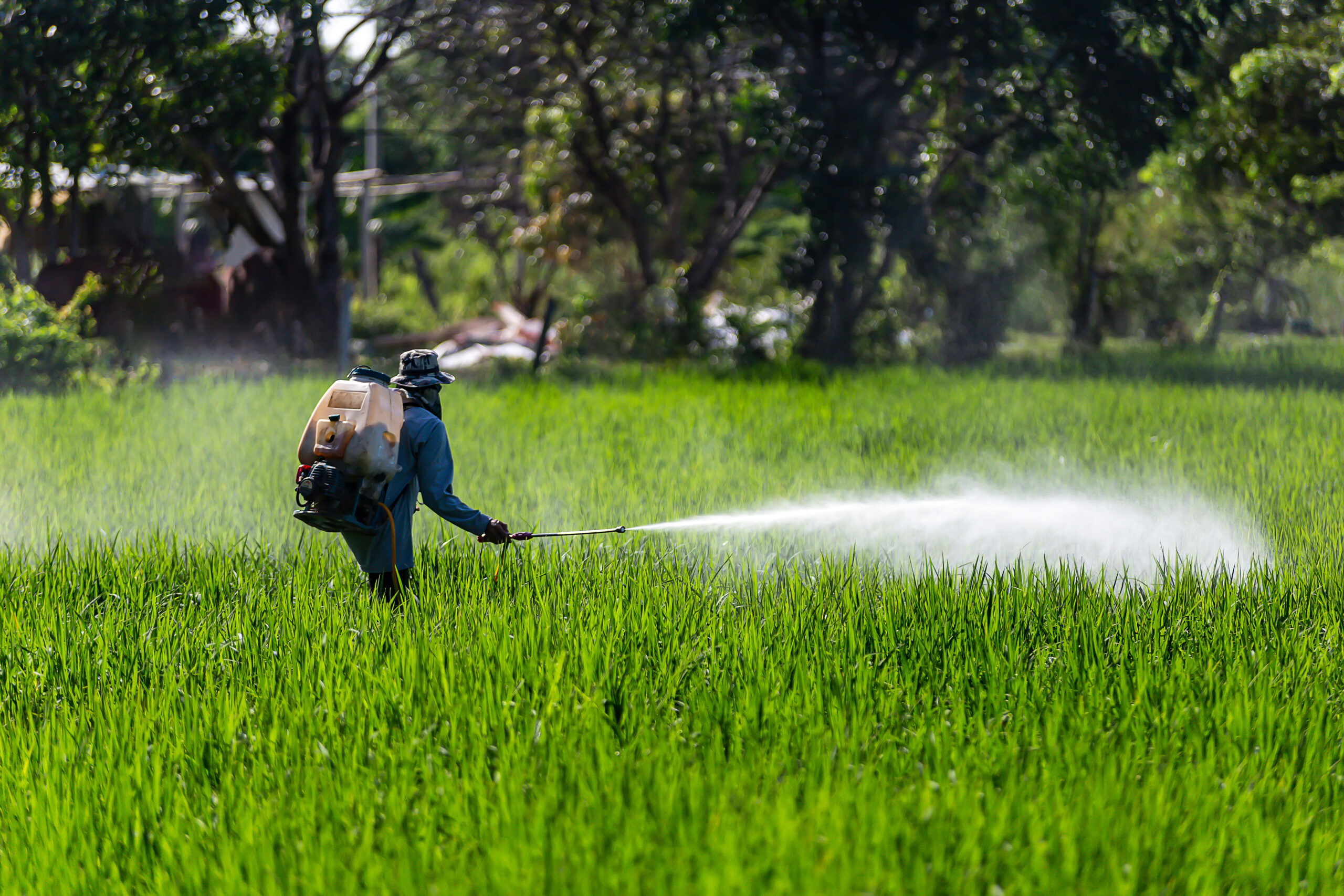What Causes Microbiome Dysbiosis And How To Restore Gut Health
Exactly what causes microbiome dysbiosis is a complicated question, as there are so many factors at play. The human body is a complex system that relies on a delicate balance of various microorganisms to maintain overall health. One of the key players in this ecosystem is the microbiome, which refers to the community of bacteria, viruses, fungi, and other microorganisms that live in and on our bodies. The majority of these microorganisms reside in our gut, also known as the gastrointestinal tract.
When this delicate balance within the microbiome is disrupted, it can lead to a condition called dysbiosis. Dysbiosis occurs when there is an imbalance between beneficial and harmful microorganisms in the gut. This disruption can be caused by several factors including diet, lifestyle choices, medication use, and environmental influences.
What Causes Microbiome Dysbiosis – Toxins
Chemicals and toxins are pervasive in our modern world, infiltrating various facets of our daily lives. From household products like cleaning supplies to personal care items such as cosmetics, these harmful substances can also be found in the food we consume and even in our water supply. However, their presence is not limited to merely existing around us, as they also have a significant impact on our health, particularly on our digestive system. One of the most concerning effects of chemicals and toxins is their ability to disrupt the balance of bacteria in our gut.

What Causes Microbiome Dysbiosis – Chemicals
Endocrine disruptors are pervasive in our modern world, found in everyday products such as plastic containers and even in the food we eat. These chemicals have been linked to a variety of health issues, including disruptions in gut function.
One way that endocrine disruptors affect the gut is by interfering with hormone regulation. When certain chemicals alter levels of estrogen or testosterone, it can lead to digestive problems such as IBS or IBD.
Endocrine disruptors also indirectly affect gut health by disrupting the balance of bacteria in the gut microbiome. When endocrine disruptors alter the composition of these microbes, it can lead to dysbiosis and a range of other gastrointestinal issues. Therefore, limiting exposure to endocrine disruptors is essential for maintaining a healthy gut microbiome.1
What Causes Microbiome Dysbiosis – BPA
Bisphenol A (BPA) is a chemical compound that is widely used in the production of plastics and resins. Its presence can be found in everyday items such as plastic containers, water bottles, food packaging, and even dental fillings. Additionally, BPA is often used as a lining for canned foods and beverages.
However, concerns have been raised about the potential impact of BPA on human health. Several studies have shown that exposure to this chemical can disrupt hormone levels and lead to various health issues. Among these health issues are gut problems, which can greatly affect our overall well-being.
One of the main ways in which BPA affects our gut health is by altering the balance of bacteria in our gut microbiota. This can lead to an overgrowth of harmful bacteria and a decrease in beneficial bacteria, resulting in a weakened immune system, increased inflammation, and digestive problems such as bloating, constipation, diarrhea, and even irritable bowel syndrome (IBS).
Moreover, BPA has been found to damage the lining of the intestines and increase intestinal permeability. This condition, commonly known as leaky gut syndrome, allows substances that are not supposed to pass through the intestinal walls to enter the bloodstream. This triggers an immune response that can lead to food sensitivities, allergies, and even autoimmune disorders.2
What Causes Microbiome Dysbiosis – Phthalates
Phthalates are a type of chemical compound commonly used in various consumer products, including plastic toys, household cleaners, and personal care items. They can also be found in food packaging and medical devices. Despite their long history of use, recent research has revealed potential negative effects on human health.
The primary method of exposure to phthalates is through ingestion. This occurs when individuals consume contaminated food or water, or ingest particles from plastic packaging. Other ways people may come into contact with phthalates include inhalation and skin contact with products containing these chemicals.
One concerning aspect of phthalates is that they accumulate in the body over time as they are not easily metabolized and eliminated. This means that even small exposures over a prolonged period can have cumulative effects on the body.
Research has shown that phthalate exposure can disrupt the balance of bacteria in the gut, leading to inflammation and digestive problems. Additionally, phthalates have been found to alter the immune system, potentially causing individuals to be more susceptible to food allergies and intolerances.
In fact, studies have linked phthalate exposure with symptoms commonly associated with Irritable Bowel Syndrome (IBS), such as abdominal pain, bloating, and diarrhea. Furthermore, some research suggests a potential connection between phthalate exposure and Inflammatory Bowel Disease (IBD), including Crohn’s disease and ulcerative colitis.3
What Causes Microbiome Dysbiosis – PFAS
PFAS, or per- and polyfluoroalkyl substances, have become a pervasive part of our daily lives. From non-stick cookware to stain-resistant fabrics, food packaging materials to firefighting foams, these chemicals can be found in countless products. However, their widespread use has raised concerns about their potential impact on human health.
One area of concern is the effect of PFAS on the gut microbiome. Studies have shown that exposure to these chemicals can disrupt the balance of bacteria in the gut, leading to a range of digestive issues such as irritable bowel syndrome and inflammatory bowel disease. This disruption can also weaken the intestinal barrier, known as “leaky gut,” allowing toxins and harmful substances to enter the bloodstream and cause inflammation throughout the body.4
What Causes Microbiome Dysbiosis – Glyphosate
The use of pesticides has raised concerns due to its potential impact on gut health. Studies have revealed that exposure to pesticides can disrupt the balance of our gut microbiome. Additionally, some pesticides have been found to be harmful to the cells lining our digestive tract, causing inflammation and damage. This can result in discomforting symptoms such as bloating, abdominal pain, and irregular bowel movements.
Furthermore, research has also connected pesticide exposure to an increased risk of developing gastrointestinal conditions like Irritable Bowel Syndrome (IBS), Inflammatory Bowel Disease (IBD), and leaky gut syndrome.5
One of the primary pesticides linked to gut problems is glyphosate, which is widely used in the United States. While there was a push for a complete ban on glyphosate in the EU in 2022, it was ultimately denied due to potential economic consequences. However, some European countries have taken steps to limit its use and eventually phase it out.6
The mechanism of action for glyphosate involves inhibiting an enzyme called EPSP synthase, which is important for the production of certain amino acids in plants. But research has also shown that this herbicide can disrupt the balance of bacteria in our guts, contributing to leaky gut syndrome.7
Additionally, glyphosate has been found to affect zonulin production, a protein that plays a crucial role in regulating the tight junctions between cells in the intestinal lining. When these tight junctions become compromised, it can lead to increased permeability and allow harmful substances to enter the bloodstream.8

Chronic inflammation is a key characteristic of leaky gut syndrome, and research has shown that exposure to glyphosate can contribute to elevated levels of markers associated with inflammation. This chemical disrupts the delicate balance of beneficial bacteria in the gut, allowing harmful bacteria to thrive and triggering an inflammatory response.
One particular strain of bacteria that is affected by glyphosate is Bacteroides fragilis, which plays a crucial role in producing Treg cells. These cells help regulate immune responses and prevent excessive inflammation from occurring. When their numbers are reduced due to glyphosate exposure, it can lead to an overactive immune system and increase the risk of autoimmune diseases such as IBD and IBS.9
Dealing With Toxins That Cause Microbiome Dysbiosis
When it comes to addressing gut problems, targeting the root cause of toxicity at the cellular level is crucial. This approach is based on the 5Rs, my guide that outlines steps for effectively dealing with gut issues.
The first step, R1, involves identifying and avoiding sources of toxins in our daily lives. Making the switch to an organic diet and eliminating products that contain harmful chemicals can significantly reduce toxic load in our bodies.
R2 focuses on repairing and regenerating damaged cellular membranes caused by exposure to toxins. By reducing inflammation in these membranes, we can improve nutrient absorption and waste removal, leading to improved metabolic function and ultimately alleviating gut problems.10
In R3, the focus shifts towards restoring the body’s vital pathways that have been depleted by toxins. By boosting cellular activity and opening up detox pathways, we can stimulate ATP production, which is essential for optimal cell function. This also enables the production of glutathione, a powerful antioxidant that aids in eliminating toxins from the body. By improving cellular function, the body’s ability to expel toxins is significantly enhanced.11 12

In R4, we shift our focus to putting an end to cellular membrane inflammation. While it may be a common belief that eliminating toxins naturally leads to a decrease in inflammation, this is not always the case. The NO/ONOO cycle, a complex feedback loop within our bodies, can actually contribute to maintaining cellular membrane inflammation. However, there are certain compounds that can disrupt this cycle and effectively downregulate inflammation within cellular membranes.13
The role of R5 is restoring proper cellular methylation patterns. Methylation is a vital biochemical process that occurs in every cell of our body. It involves the transfer of a methyl group (CH3) from one molecule to another, which is necessary for the production of essential compounds like proteins, DNA, and neurotransmitters.
Unfortunately, various factors such as exposure to chemicals and toxins can disrupt this delicate process. This can have negative effects on our health, including gut problems. However, we can restore proper methylation through the use of methyl donors – compounds that provide a methyl group to support the methylation process.
Proper methylation also plays a crucial role in epigenetic regulation, which refers to how external factors can influence gene expression. By promoting proper methylation, we are able to turn on beneficial genes and turn off harmful ones that contribute to gut issues.14
What Causes Microbiome Dysbiosis And How To Restore Gut Health
Our modern environment is inundated with chemicals and toxins that can wreak havoc on our gut health. From endocrine disruptors to phthalates, PFAS chemicals, and pesticides like glyphosate, these substances can have a profound impact on our overall well-being. In order to address the root cause of gut problems, it’s crucial that we reduce our exposure to these harmful substances.
Avoiding exposure is only one piece of the puzzle. It’s also important to actively remove these toxins from our cells in order to restore normal cellular function and improve gut health. This process can be achieved through my 5Rs method, which I will delve into further in my free webinar.
References
1 Gálvez-Ontiveros Y, Páez S, Monteagudo C, Rivas A. Endocrine Disruptors in Food: Impact on Gut Microbiota and Metabolic Diseases. Nutrients. 2020 Apr 21;12(4):1158. doi: 10.3390/nu12041158. PMID: 32326280; PMCID: PMC7231259.
2 Catron TR, Keely SP, Brinkman NE, Zurlinden TJ, Wood CE, Wright JR, Phelps D, Wheaton E, Kvasnicka A, Gaballah S, Lamendella R, Tal T. Host Developmental Toxicity of BPA and BPA Alternatives Is Inversely Related to Microbiota Disruption in Zebrafish. Toxicol Sci. 2019 Feb 1;167(2):468-483. doi: 10.1093/toxsci/kfy261. PMID: 30321396.
3 Chiu K, Warner G, Nowak RA, Flaws JA, Mei W. The Impact of Environmental Chemicals on the Gut Microbiome. Toxicol Sci. 2020 Aug 1;176(2):253-284. doi: 10.1093/toxsci/kfaa065. PMID: 32392306; PMCID: PMC7416318.
4 Beale DJ, Nguyen TV, Shah RM, Bissett A, Nahar A, Smith M, Gonzalez-Astudillo V, Braun C, Baddiley B, Vardy S. Host-Gut Microbiome Metabolic Interactions in PFAS-Impacted Freshwater Turtles (Emydura macquarii macquarii). Metabolites. 2022 Aug 16;12(8):747. doi: 10.3390/metabo12080747. PMID: 36005619; PMCID: PMC9415956.
5 Giambò F, Teodoro M, Costa C, Fenga C. Toxicology and Microbiota: How Do Pesticides Influence Gut Microbiota? A Review. Int J Environ Res Public Health. 2021 May 21;18(11):5510. doi: 10.3390/ijerph18115510. PMID: 34063879; PMCID: PMC8196593.
6 Where is Glyphosate Banned? | Wisner Baum. (2023, March 31). Wisner Baum. https://www.wisnerbaum.com/toxic-tort-law/monsanto-roundup-lawsuit/where-is-glyphosate-banned-/
7 Puigbò P, Leino LI, Rainio MJ, Saikkonen K, Saloniemi I, Helander M. Does Glyphosate Affect the Human Microbiota? Life (Basel). 2022 May 9;12(5):707. doi: 10.3390/life12050707. PMID: 35629374; PMCID: PMC9145961.
8 Fasano A. All disease begins in the (leaky) gut: role of zonulin-mediated gut permeability in the pathogenesis of some chronic inflammatory diseases. F1000Res. 2020 Jan 31;9:F1000 Faculty Rev-69. doi: 10.12688/f1000research.20510.1. PMID: 32051759; PMCID: PMC6996528.
9 Cheng H, Guan X, Chen D, Ma W. The Th17/Treg Cell Balance: A Gut Microbiota-Modulated Story. Microorganisms. 2019 Nov 20;7(12):583. doi: 10.3390/microorganisms7120583. PMID: 31756956; PMCID: PMC6956175.
10 Ammendolia, D.A., Bement, W.M. & Brumell, J.H. Plasma membrane integrity: implications for health and disease. BMC Biol 19, 71 (2021). https://doi.org/10.1186/s12915-021-00972-y
11 Vašková J, Kočan L, Vaško L, Perjési P. Glutathione-Related Enzymes and Proteins: A Review. Molecules. 2023 Feb 2;28(3):1447. doi: 10.3390/molecules28031447. PMID: 36771108; PMCID: PMC9919958.
12 Zolkipli-Cunningham Z, Falk MJ. Clinical effects of chemical exposures on mitochondrial function. Toxicology. 2017 Nov 1;391:90-99. doi: 10.1016/j.tox.2017.07.009. Epub 2017 Jul 27. PMID: 28757096; PMCID: PMC6078194.
13 Pall M. L. (2013). The NO/ONOO-cycle as the central cause of heart failure. International journal of molecular sciences, 14(11), 22274–22330. https://doi.org/10.3390/ijms141122274
14 Dhar GA, Saha S, Mitra P, Nag Chaudhuri R. DNA methylation and regulation of gene expression: Guardian of our health. Nucleus (Calcutta). 2021;64(3):259-270. doi: 10.1007/s13237-021-00367-y. Epub 2021 Aug 16. PMID: 34421129; PMCID: PMC8366481.
Disclaimer: All rights reserved. Information provided is for general purposes and not intended to provide medical advice, diagnosis, or treatment. Consult your healthcare professional for medical concerns. About Dr. Pompa




